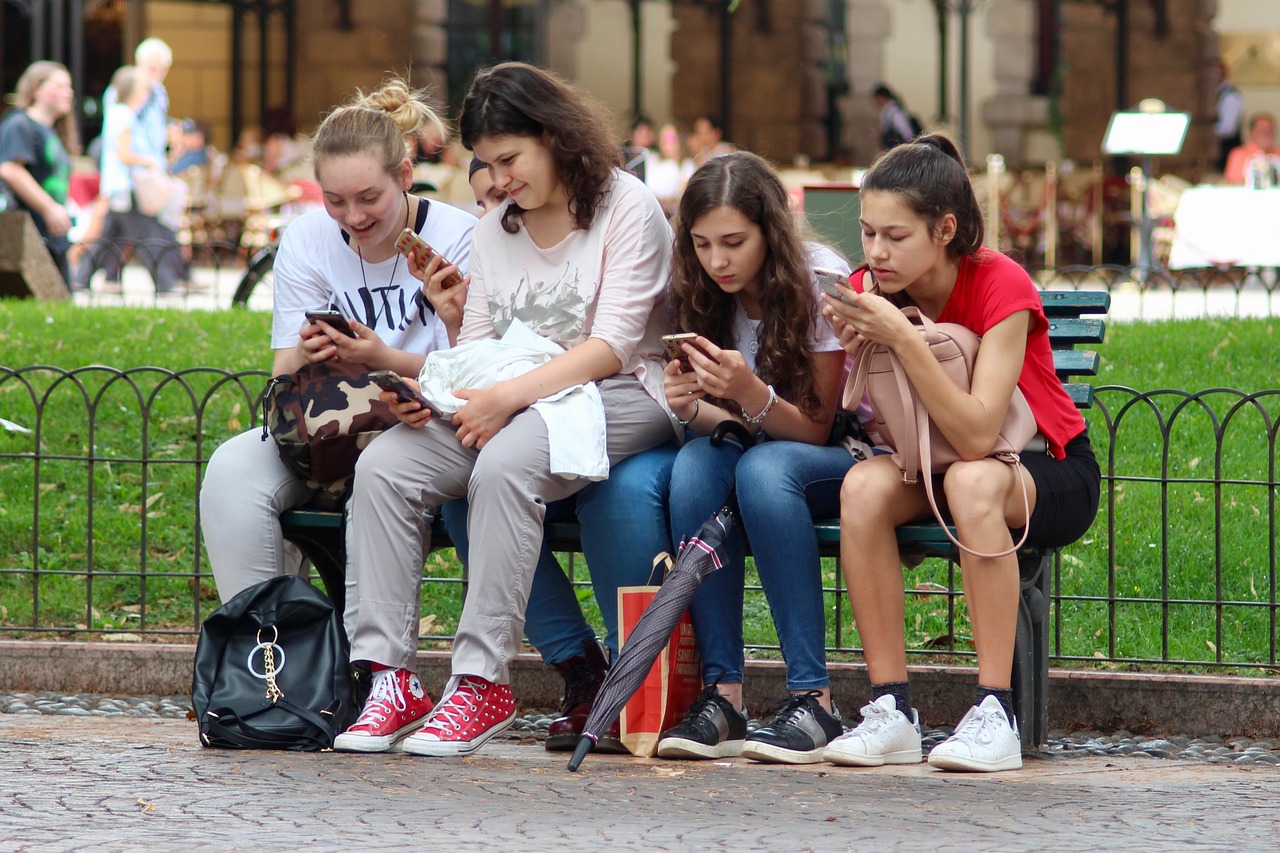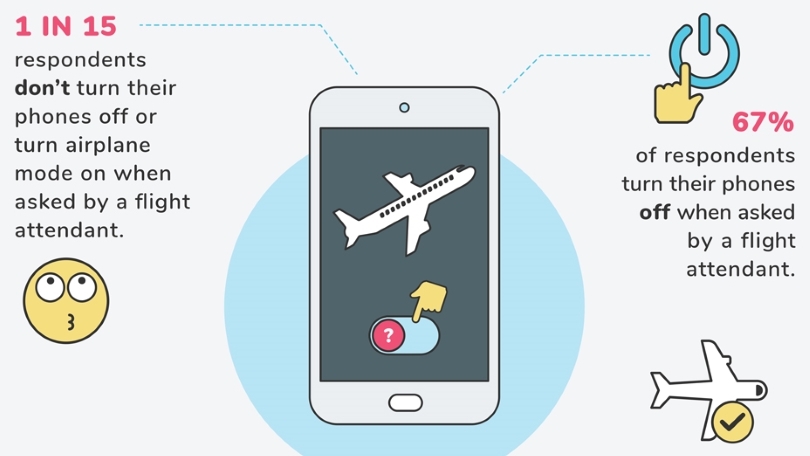Cell phones have become an important part of our lives, changing our daily habits in both big and small ways. The transition from landlines to smartphones has completely altered how we communicate, moving from a large wall-mounted device to a sleek tool that connects us constantly, conveniently fitting in our pockets.
The significant rise in cell phone use over the past two decades shows how essential they have become, with an impressive 80% of the world’s population now relying on them for communication. This widespread use shows how cell phones have evolved from a luxury to a necessary tool, demonstrating their strong impact on both our personal and professional lives.
In our personal lives, the mobile phone has evolved into a versatile tool with a wide array of functions beyond just calling. Its portability has liberated us from the constraints of physical presence, enabling us to be virtually present everywhere while being at home. This widespread availability has significantly improved our social connections, making it easier for us to maintain and nurture relationships over long distances.
Through messages, calls, and social media platforms, we stay connected to our loved ones, sharing moments and memories instantly, regardless of where they are located. The mobile phone’s transition into a compact computer has enriched this communication, granting us access to the world right at our fingertips. Whether staying updated on current events or enjoying our favorite content, the mobile phone has become our gateway to global information and entertainment.

Smartphone’s drawbacks and strengths in our live
The seamless integration of smartphones into our lives has brought drawbacks. The constant notifications and the need to always stay connected have added layers of stress and anxiety. The pressure to be constantly available blurs work and leisure boundaries, encroaching on essential downtime. Additionally, immediate access to information fosters a culture of instant gratification, creating unrealistic expectations for response times. This digital link paradoxically impacts our social interactions; despite increased connectivity, quality often diminishes. The ease of digital communication can sacrifice deeper, meaningful connections, fostering isolation within a vast network.
The idea of life without smartphones presents a fascinating dilemma. On one hand, the absence of this technology would undoubtedly slow down our pace of life. Without the ability to communicate instantly, we would return to more traditional forms of communication, valuing quality over quantity. Relying on advance planning and physical meetings could foster deeper, more meaningful relationships, grounded in the effort and intention behind each interaction. The lack of constant connectivity could also offer us a break from the incessant demands of our digital lives, allowing us to rediscover the joy of undistracted presence and the richness of the physical world around us.
The convenience and efficiencies provided by smartphones cannot be overlooked. They have transformed how we access information, manage our tasks, and connect with others, making our lives more interconnected and efficient. Immediate access to information and people has not only enhanced our productivity but has also empowered us to respond swiftly to emergencies and coordinate complex activities with ease. In this perspective, imagining a life without smartphones seems not only impractical but also undesirable. The challenge then lies in finding a balance between leveraging the benefits of this technology and mitigating its drawbacks.
This equilibrium is crucial, as the discussion around smartphone usage and its impact on our lives continues to evolve. Stories of individuals choosing to go without smartphones, embracing the simplicity of ‘vintage’ technology like flip phones, or even living entirely phone-free, offer intriguing insights into the possibilities of a less digitally-dependent existence. These narratives highlight the various ways in which people are navigating the challenges and opportunities presented by our increasingly connected world, prompting us to reassess our own relationships with our devices. As we explore these experiences further, we are reminded of the importance of intentionality in our use of technology, encouraging us to develop a digital diet that aligns with our values and enhances, rather than detracts from, our quality of life.
Navigating a World Without Cell Phones: A Reality Check
Painting a picture of a world devoid of cell phones seems akin to imagining modern life without electricity. The prospect feels almost dystopian, given how intertwined these devices have become with the minutiae of our daily routines. Yet, delving into this thought experiment reveals some poignant truths about our dependence on cell phones and the potential freedoms and challenges that lie in their absence.
The instant accessibility to communicate, which cell phones have provided, has undeniably made our lives more convenient. A quick text can replace a lengthy phone call; an email sent on the go spares us from being tethered to a desktop. However, the immediate nature of cell phone communication also harbors a downside. The expectation to be constantly reachable adds a layer of pressure, an incessant demand for our attention that can fray the nerves. Without cell phones, this digital leash would be severed, offering a reprieve to those feeling the strain of perpetual connectivity.
Let’s not gloss over the logistical nightmares that would accompany a cell phone-free world. The coordination of day-to-day activities, from arranging meet-ups with friends to scheduling professional appointments, would become noticeably more cumbersome. The ease with which we can now manage these tasks belies the complexity and time investment they would demand without the convenience of instant communication. For example, the rescue operations mentioned in the context, which rely heavily on the swift communication cell phones facilitate, would face significant setbacks, potentially affecting the success rates of such critical missions.
The narrative of individuals like Stacy Torres, who have consciously chosen to eschew smartphones, offers a glimpse into the challenges and benefits of a less digitally-dependent life. Her experiences highlight the increasing difficulty of navigating a world designed for the smartphone user. From accessing public services to the simple act of dining out, the absence of a smartphone erects barriers that can isolate and disadvantage those without. Yet, Torres’s stance also underscores a crucial point: the autonomy and mental tranquility that can be reclaimed by distancing oneself from the pervasive reach of smartphones.
This divergence from digital dependence is not just a personal choice but a societal issue. The stories of young people, like those in the Luddite Club, and older generations alike opting for ‘vintage’ technology or minimal tech use, parallel a broader conversation about the impact of our digital consumption. They prompt us to reconsider the trade-offs between convenience and quality of life, between being perpetually online and preserving moments of solitude and reflection.
In envisioning a life without cell phones, we’re forced to confront our vulnerabilities. Our reliance on these devices not only for communication but for validation, entertainment, and even as a shield from boredom, exposes a fragility in our social fabric. The decline in mental health among Gen Z, as noted in the context, underscores the dark side of this digital immersion. The correlation between the rise in smartphone usage and the decline in mental well-being among adolescents speaks volumes about the need for a recalibration of our digital diets.
The debate should focus on mindful technology use, not giving up cell phones
Finding the sweet spot where the use of cell phones enhances rather than detracts from our quality of life is the challenge of our times. Whether through technological solutions that limit screen time or societal shifts that prioritize face-to-face interactions, the goal is to mitigate the adverse effects of cell phone dependency while preserving the undoubted benefits these devices offer.
We consider a world without cell phones, realizing that the key question here is not about the devices but about how we use them. It’s a reminder to value the human connections technology enables, while also preserving the depth of real-world interactions. Navigating a world with or without cell phones involves redefining our relationship with these tools, ensuring they meet our needs without overshadowing the essence of a fulfilled life.
Related posts:
Life Without a Cell Phone: Benefits and Outcomes
Opinion: I’ve lived into my 40s without ever owning a smartphone. Hopefully I’ll never have to
End the Phone-Based Childhood Now





